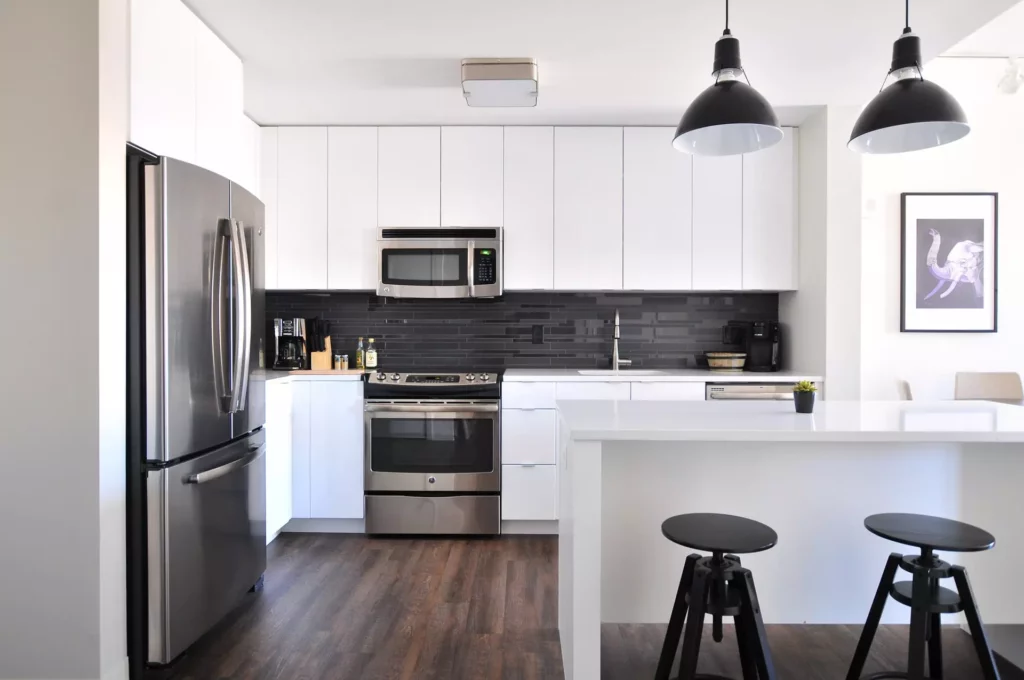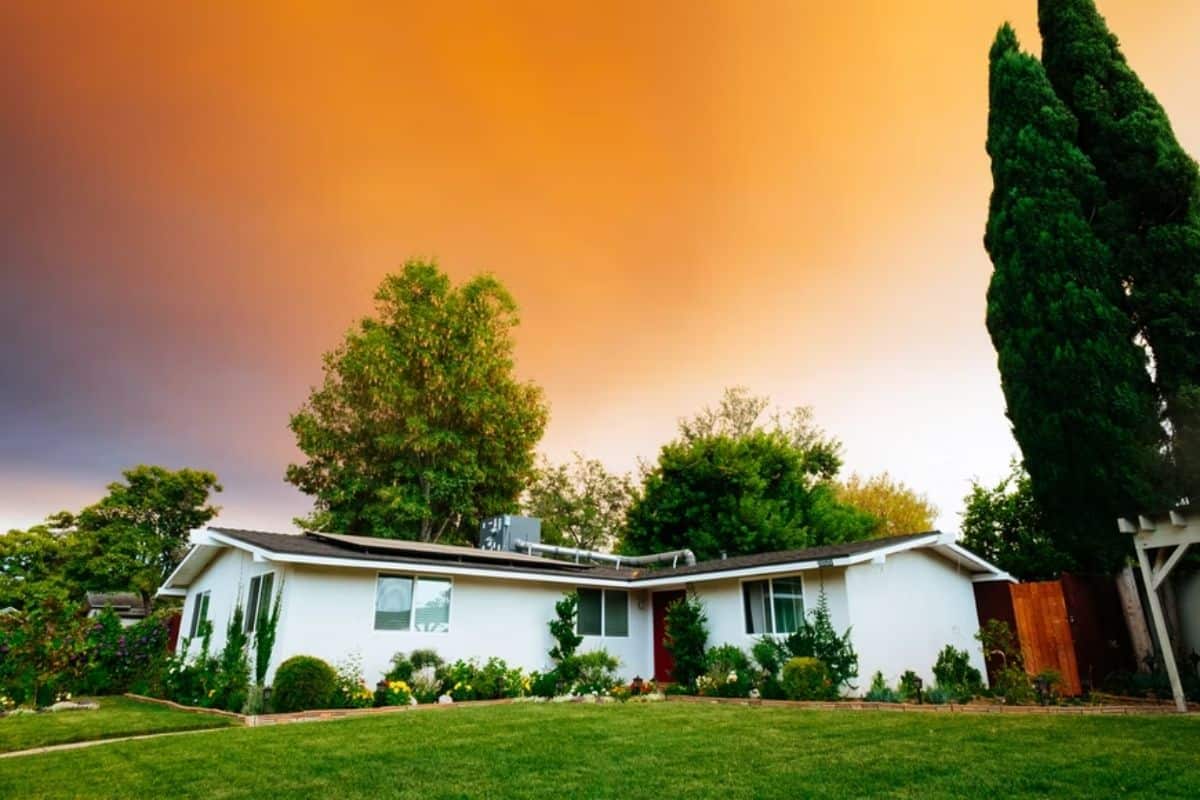What happens when you find a property that would make a great house hack only to find out that it needs substantial renovations? Maybe the property doesn’t meet the local code. Or maybe the property is “unlivable” in its present condition. You may think you won’t be able to get financing. Don’t give up yet! FHA 203K loans may be your ideal solution.
Even if the home is in disrepair or doesn’t meet the local code, this FHA loan program provides funds to buy and renovate the home all in one loan.
This single-close loan makes it easy for people just like you to afford the property you want while fixing it up whether for safety, local code, or your own preferences.
And it can be a great option for house hackers.
Let’s go over the basics of the FHA 203K loan program and how you can use it.
What is an FHA 203K Loan?
FHA 203K loans are a branch of the standard FHA loan that many house-hackers are familiar with.
It’s an FHA loan that also covers the cost of the rehab for a property.
The 203K program provides borrowers with the lesser of (1) the value of the property before the rehab plus the cost of the rehab, or (2) 110 percent of the home’s after-repair value.
The lender disburses the purchase funds to the appropriate parties (seller, closing agent, appraisers, etc.) at the closing and the remaining funds sit in escrow during renovations.
This means that you only get those renovations funds as you make your renovations.
So, with similar requirements to “normal” FHA loans for credit, the down payment, and underwriting, many homeowners can secure money to both buy a home and renovate it.
How it Works
Here’s a rundown of the process for FHA 203k loans:
- Apply with a few FHA lenders, letting them know of your intention to use a 203k loan.
- Give the lender(s) all of the underwriting documents they ask for (i.e. proof of income, credit information, etc.).
- Get pre-approved for an FHA 203k loan, factoring in the higher amount needed for potential renovations.
- Find a property and determine the approximately renovations/repairs needed (i.e. any repairs to bring the home up to code are a priority).
- Make an offer on the property and get it under contract.
- Find licensed contractors to bid for the work on the property. You might ask your agent or inspector (or any other member of your team) for referrals.
- Get bids from the contractors and choose your contractor(s). It’s definitely a good idea to get at least a few quotes for larger projects.
- Get you selected contractor(s) bids approved by the lender.
- Submit the contractor’s agreement and all paperwork to your lender (income and asset documentation) to complete the underwriting process.
- Close the loan and take possession of the home.
- Contractors may begin work as soon as you close on the loan, and they must complete renovations within 6 months. You may live in the property or elsewhere if the renovations are too disruptive.
Lenders’ agents will conduct periodic inspections to ensure the legitimacy and accuracy of the work as it gets completed.
Throughout the process, you’ll work with a loan consultant. That person serves as the liaison between you, the lender, and the contractors.
The loan consultant ensures the contractor completes the work according to the agreement and that all work meets the necessary requirements.
How to Qualify for FHA 203k Loans
Like standard FHA loans, the 203K program has flexible underwriting guidelines including:
- Minimum credit score of 500 (some lenders prefer a higher score, likely over 600)
- 3.5% down payment on the total loan amount (purchase price + renovation costs)
- Maximum debt to income ratio (your total monthly payments divided by your monthly income) below 43 percent
- Loan-to-value ratio of up to (1) 110% of the home’s after-repaired value, or (2) the total cost of the purchase price + renovations (whichever is less) and up to the FHA loan limits for your area
- Agree to occupy the property as your primary residence
In addition, the property itself must qualify.
If your allowed loan amount will not be able to cover the necessary renovations so the home meets the FHA’s Minimum Property Guidelines, it may affect your ability to get approved.
That said, the property can have multiple units, which would make house hacking that much easier. However, FHA 203k loans may not be used for properties with more than 4 units.
What are the Benefits of 203(k) Loans?
The benefits of 203(K) loans are like those of any low-down payment loan program. Let’s take a look at some of them now:
- You expand your options, knowing that you can buy a home and fix it up the way you want it, including structural and cosmetic changes
- If the renovations are non-structural and cost less than $30,000, the FHA Streamline 203K loan may be a good option which has less paperwork and fewer restrictions
- You only need a 3.5 percent down payment and 100 percent of it can be gift funds from a family member, employer, or charitable organization if documented correctly
- FHA loans have competitive interest rates and flexible underwriting guidelines
- Even with so-so credit, you can generally get approved for an FHA loan
- You roll 6 months of mortgage payments into your loan amount so you don’t have to make payments while you live elsewhere as your contractor(s) complete the renovations
What Renovations Can You Make with an FHA 203k Loan?
If you qualify for an FHA 203K loan, you may make any renovations, including structural changes, so long as the total amount stays within FHA loan limits.

Lenders may require certain renovations or repairs if the home doesn’t meet the local code or there are safety hazards. After resolving those issues, you may make any renovations that are permanent and not considered ‘a luxury.’ A few common examples include:
- Adding bedrooms
- Renovating a kitchen
- Major landscaping renovations
- Making a home disability accessible
- Remodeling or renovating bathrooms
- Replacing flooring
- Replacing roofing
- Finishing a basement
Conclusion: Should You Consider an FHA 203K Loan?
If you’re wanting to house hack but come across a property that needs work, FHA 203K loans can be a great option. They can cover the cost to fix up the property. And they can let you get started with house hacking with relatively little out of pocket.
This website, and any communication stemming from it, should not be taken as financial or legal advice for your specific situation. Consult directly with a licensed financial professional should you need investment advice and consult directly with a licensed attorney directly should you need legal advice. Assume all links are affiliate links. I am an Amazon affiliate.


